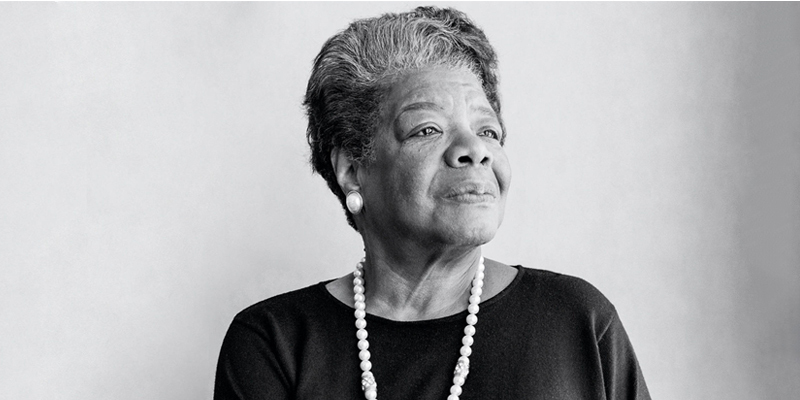
“The caged bird sings
with a fearful trill
of things unknown
but longed for still
and his tune is heard
on the distant hill
for the caged bird
sings of freedom.”
These hard-hitting lines are from ‘I know why the caged bird sings,’ a poem by Maya Angelou. It talks about the difference between a free bird and a caged one, and what freedom means to the latter. The poem is considered to be one of the most famous pieces of modern literature because of the easy manner in which it talks about serious topics like discrimination, abuse, and freedom – three things Angelou, the poet, was very familiar with.
Who was Maya Angelou and why is she so celebrated? On her 94th birth anniversary, let’s look at the extraordinary life and times of the legendary African-American poet and author.
Angelou was born Marguerite Annie Johnson on April 4 1928, in St. Louis, Missouri. Her father was a navy dietician and her mother a nurse. She also had an elder brother, Bailey Jr., who gave her the nickname ‘Maya’. Angelou and her brother mostly lived with their grandmother as their parents separated when she was a toddler.
Angelou grew up in a difficult environment, subjected to severe racism and abuse as she was an African-American girl. Despite moving around a lot and growing up in less-than-perfect circumstances, Angelou found herself drawn to poetry and literature. A family friend and teacher, Mrs Flowers encouraged Angelou to write her own poetry and prose, which she found to be liberating. At the age of 16, she became the first black woman to become a streetcar (similar to a tram) conductor in San Francisco.
Angelou didn’t become a literary star until much later in her life. She tried different kinds of jobs – she was a fry cook, actor, singer, dancer and editor. In 1954, when she was a fry cook, a theatre group recognised her talent for the stage and picked her to play a role in the play, Porgy and Bess, which took her on an international tour. She also performed as a singer in clubs and went on to record an album after her stint with the theatre company and perform on Broadway.
It was only in 1959 when she was 31 years old, that her writing career took off. She was invited to join the Harlem Writers Guild, which is the oldest group of African-American writers, in New York. Her work with the guild not only encouraged her to write more, but also got her more involved in the Civil Rights Movement. In 1961, she moved to Cairo, Egypt, where she worked as an editor for a newspaper called The Arab Observer. A year later, she moved to Ghana, where she took up the position of features editor for the African Review.
During the 1960s, she was heavily involved in the Civil Rights Movement in The United States and would work with major activists like Martin Luther King Jr. and Malcolm X.
A few years later, in 1969, she published her first autobiography, ‘I Know Why The Caged Bird Sings’. The book received widespread appreciation as Angelou was honoured as one of the few African-American women who wrote about her life. This led to the publication of six more autobiographies in subsequent years, where she talked about different phases of her life.
Angelou had a life and career that most artists would envy. She not only wrote books and poetry, but continued to compose music and act in films, theatre, and even television. She was given over 50 honorary degrees by various colleges and universities, despite having no actual bachelor’s degree.
She became the voice of inspiration for many African-Americans over the years, including stars like Oprah Winfrey. In an interview in 1995, when she was asked what inspired her to write seven autobiographies, she responded with one of her most iconic responses: “I wrote about my experiences because I thought too many people tell young folks, ‘I never did anything wrong. Who, moi? – never I. I have no skeletons in my closet. In fact, I have no closet.’ They lie like that and then young people find themselves in situations and they think, ‘Damn I must be a pretty bad guy. My mom or dad never did anything wrong.’ They can’t forgive themselves and go on with their lives.”
On May 28, 2014, Angelou passed away at the age of 86 due to poor health. She left behind an unrivalled legacy in the world of arts, literature, and justice.
Madhavi is passionate about everything to do with books, art, literature, films, trivia and food. A former journalist, she believes that asking questions makes life interesting.